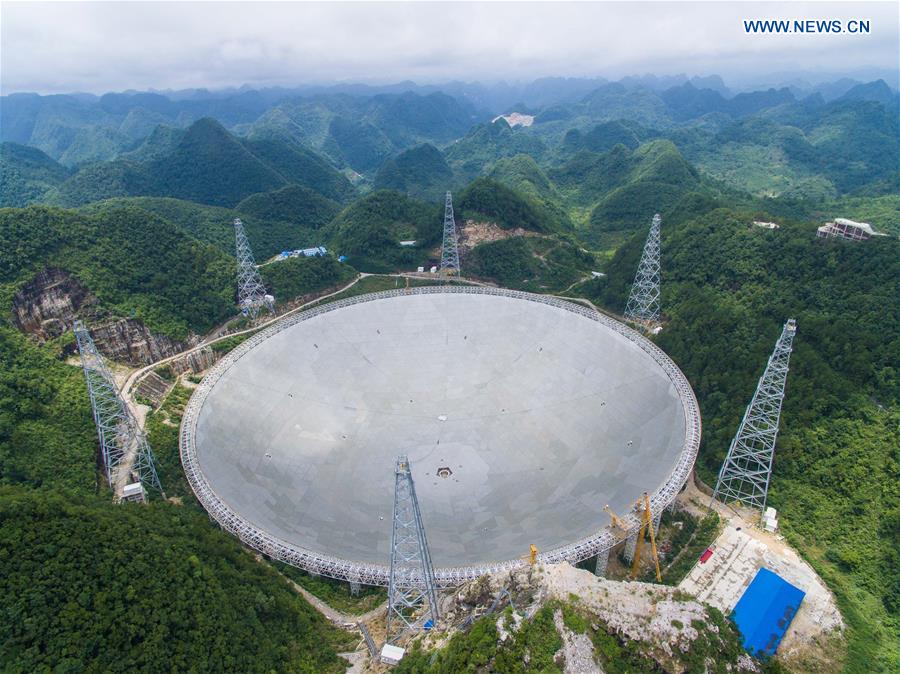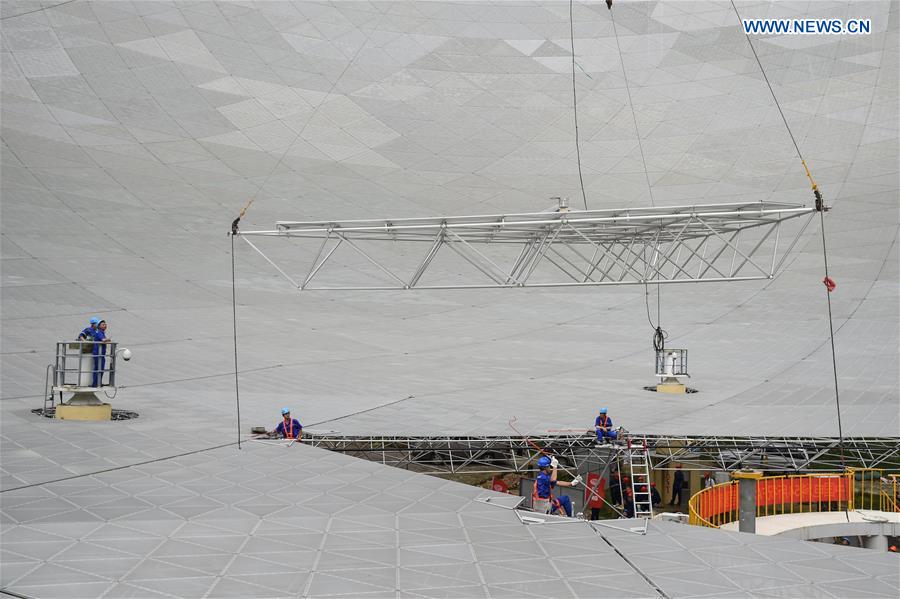
China has its eye on tracking alien activity now the
construction of the "world's largest telescope" has finally
finished.
The Five-hundred-meter Aperture Spherical Telescope, or FAST's
tale began in 1994, when planning the device for the purpose of
searching for extraterrestrial life began. After jumping over
regulatory and permission hurdles, the massive telescope took five
years to complete and cost a total of $180 million.
FAST compromises of a massive reflecting dish containing 4,450
panels which span roughly the size of 30 football fields, according
to local media.
The telescope, located in Pingtang County in the southwestern
province of Guizhou, will be used to search for "strange" objects
which will help us understand more about our universe. FAST will
also be used to watch neutral hydrogen activity in distant
galaxies, gravitational waves and pulsars.
The scientists behind the project say that amino acids could
also be discovered eventually, which could point towards alien life
on other planets and in other galaxies.
According to Zheng Xiaonian, deputy head of the Chinese Academy
of Sciences' National Astronomical Observation (NAO), scientists
will now begin debugging and trial observations of space using the
radio telescope.
Zheng believes the telescope will become "the global leader" in
this field of exploration within the next few decades.
n the first two to three years, scientists at NAO, which led the
construction of FAST, will adjust the system and use it for
early-stage research. However, Peng Bo, director of the NAO Radio
Astronomy Technology Laboratory says that after this adjustment
period the telescope will become available to scientists
worldwide.
"FAST's potential to discover an alien civilization will be five
to ten times that of current equipment, as it can see farther and
darker planets," said Peng.
However, the finished project does mean upheaval for over 9,000
nearby Chinese residents. In order to ensure radio silence and keep
the telescope's capabilities at optimal levels, these citizens --
who live within 9,000km of FAST -- will be moved away to new
settlements in Pingtang County and Luodian County.





